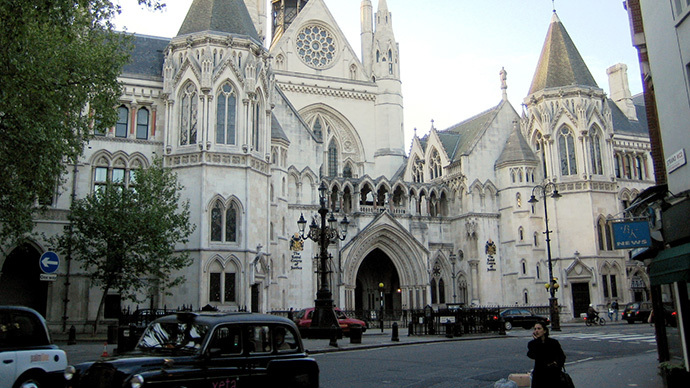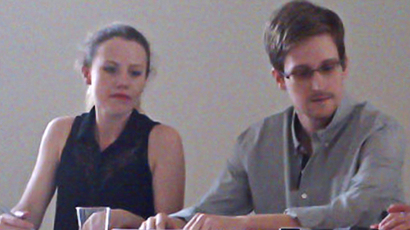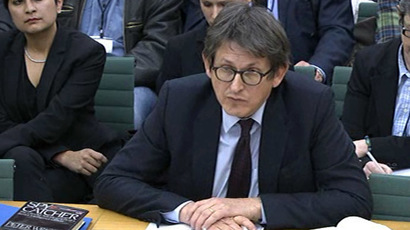UK judges block first fully secret trial

The Court of Appeal has partially blocked the first completely secret trial in Britain. Although the judges agreed that the ‘core’ of the trial must be kept secret in the interests of national security, parts of it must also be held in public.
Prosecutors for the British Crown had argued that the trial of two terrorism suspects should be held in camera in the interests of national security and that the media should not be allowed to name the two defendants, Mounir Rarmoul-Bouhadjar and Erol Incedal. Until Thursday both men were known only as AB and CD respectively.
The prosecution also warned that if judges did not ban the press and the public from every part of the proceedings then they may have to completely abandon the case.
The judges concluded that because the nature of the case was exceptional the core of the trial could be held in private.
But they also said they had “grave concerns” about the cumulative effects of not naming defendants and of holding the entire proceedings in secret.
“We express grave concerns as to the cumulative effects of holding a criminal trial in camera and anonymizing the defendants. We find it difficult to conceive of a situation where both departures from open justice will be justified,” said Lord Justice Gross, one of the judges who made the milestone ruling.
But despite the decisive words from the judges, the end ruling was in fact something of a compromise.
The media and the public will be allowed to attend the swearing-in of the jury, part of the introductory remarks of the prosecution setting out the case, the verdicts and - if there are convictions - the sentencing.
A small number of journalists will also be allowed to attend the closed parts of the hearings and their notes will be held securely until the end of the trial. This would only be allowed subject to the agreement of the confidentiality of the proceedings.
Incedal and Rarmoul-Bouhadjar were arrested in October 2013. Both men are charged with collecting information useful to terrorism, and Incedal with preparing for acts of terrorism. The events surrounding their arrest were widely reported at the time.
Lord Justice Gross went some way to explaining the judges’ decision and was at pains to underline the uniqueness of this particular case.
“Exceptions are rare and must be justified on the facts. For the [secret intelligence] agencies to operate effectively, at least much of their work is secret and must remain so as a matter of necessity. From time to time, tensions between the principle of open justice and the needs of national security will be inevitable,” he said.
The Crown Prosecution Service (CPS) will not abandon the trial despite the judge’s ruling and a spokesman said they would abide by the court’s decision.
“The measures applied for by the CPS in this case were, they believed, justified in order for the trial to proceed while protecting national security. We are pleased that the court recognized the strength of some of these arguments, and that the case can go ahead. The CPS has indicated it accepts the judgment of the court and will tailor its approach to the prosecution accordingly,” he said.
The Justice and Security Act passed into UK law in April last year and one of its justifications was to prevent intelligence provided by US sources being exposed in British courts.
Within a secret court intelligence introduced by the government or the Crown can only be seen by the judge and a security-cleared ‘special advocate’. But the special advocate cannot reveal the precise details of the evidence against a defendant, as is normal practice in open court, and can only provide a loose summary to the defendant’s defense team. So claimants may not know all of the allegations against them before they are actually in court.
In fact, closed hearings are nothing new. Child custody issues are regularly held in camera to protect children’s privacy. They are also common in employment tribunals and in the investigatory powers tribunal, which handles complaints about the intelligence services.
David Anderson QC, an independent reviewer of terrorism legislation, has described secret courts as a “tolerable” last resort. There is “a small but intermediate category of national-security related claims, both for judicial review of executive decisions and for civil damages, in respect of which it is preferable that the option of CMP (secret courts) for all its inadequacies – should exist,” he said.
But Shami Chakrabati, director of the civil rights organization Liberty, has said that allowing any secret trials to go ahead would set a “very dangerous precedent”.
Asked about the Crown’s threat to drop the trial and release the defendants if hearings could not be heard in camera she said sometimes it would be preferable to let people go.
“Occasionally fairness does require that, and that doesn’t mean that people just walk our streets unencumbered. It means that the authorities have to their job of watching suspects even more closely and then prosecuting when there is evidence that will stand up at a fair open trial,” she told BBC radio earlier this month.














